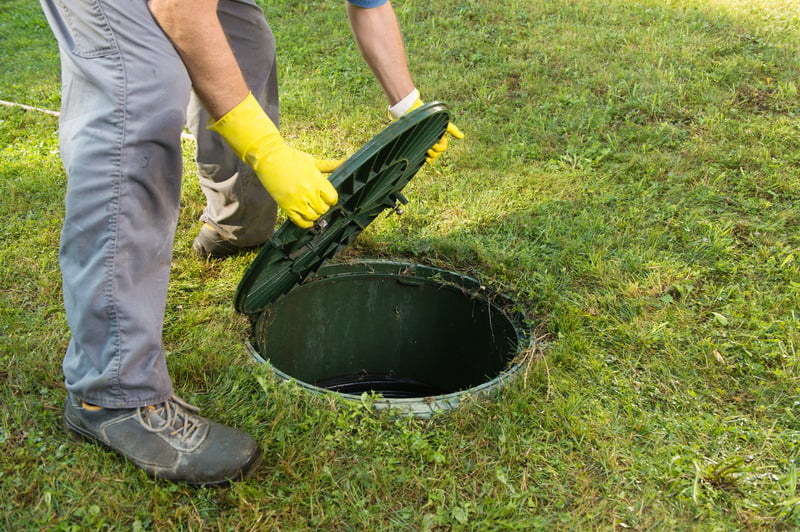Regular septic tank pumping is essential to keeping your system functioning properly and avoiding expensive repairs. But how often should you pump your septic tank in Ohio? At SepTek, we specialize in septic system maintenance and can help you establish a septic tank pumping schedule that suits your home’s needs. In this blog, we’ll answer this question and guide you on the best septic tank maintenance practices for Ohio homeowners.
Why Septic Tank Pumping Is Important
Septic tanks naturally accumulate waste over time, and if the tank isn’t pumped regularly, the waste can build up and cause blockages, backups, and even system failure. Septic tank pumping helps remove solids, scum, and sludge that can clog the tank, preventing wastewater from flowing properly. Without regular septic tank pumping, you may experience plumbing issues, environmental hazards, and costly repairs.
Septic Tank Pumping Schedule in Ohio
The general recommendation for septic tank pumping is every 3 to 5 years, but the actual schedule depends on several factors. To determine how often to service your septic tank in Ohio, it’s important to consider things like household size, tank size, and wastewater usage.
1. Household Size and Usage
The number of people in your home is one of the most important factors in determining how often you need to pump your septic tank. Larger households typically produce more waste, meaning the septic tank will fill up more quickly. If you have a large family or frequent guests, your septic tank may need to be pumped every 3 years instead of every 5 years.
2. Tank Size
The size of your septic tank directly affects how often it needs to be pumped. A larger septic tank can hold more waste, so it may take longer for it to reach capacity. Smaller tanks, on the other hand, will fill up more quickly and therefore may need more frequent pumping. If you’re unsure of your tank’s size, a professional septic service provider like SepTek can help you determine the appropriate pumping schedule.
3. Water Usage
If your household has high water usage, your septic tank will fill up more quickly. This can be due to a large family, frequent use of water-intensive appliances (like dishwashers and washing machines), or high water consumption from things like irrigation. The more water your system processes, the more frequently your tank may need pumping. If you use a lot of water on a daily basis, it’s essential to keep an eye on your septic system to avoid issues.
4. Type of Waste
The type of waste you send into your septic system also impacts its capacity. For example, using a garbage disposal to send food waste into your septic tank can increase the rate at which solids accumulate. Grease, large food particles, and non-biodegradable items should never be sent down the drain as they can cause blockages and fill up the tank faster.
5. Regular Inspections
While septic tanks need to be pumped every 3 to 5 years, having your system inspected regularly can help you determine whether pumping is necessary sooner. During a septic inspection, a professional technician will assess the sludge and scum levels in the tank. If these levels are high, it may be time to pump the tank even if it hasn’t reached the typical 3- to 5-year interval.
Signs You May Need to Pump Your Septic Tank Sooner
Even if you follow a septic tank pumping schedule in Ohio, there are signs you may need to pump your tank earlier than planned. Watch for these warning signs:
- Slow Drains: If water is draining slowly in sinks, showers, or toilets, your septic tank may be too full.
- Backups: Wastewater backing up into your home is a clear sign that your septic tank is overloaded and needs immediate attention.
- Foul Odors: A strong smell near the septic tank or drain field is another indicator that the tank is full.
- Standing Water: Pooling water around your septic system or drain field could mean the tank is overflowing.
Conclusion
Regular septic tank pumping is crucial to maintaining the health of your septic system and avoiding costly repairs. In Ohio, the general rule is to pump your septic tank every 3 to 5 years, but the exact schedule will depend on factors like household size, tank size, and water usage. At SepTek, we recommend scheduling septic inspections to ensure that your system is functioning properly and avoid unexpected issues.
If you’re unsure how often to pump your septic tank in Ohio or you suspect it may be time for a pumping, don’t hesitate to contact SepTek. Our team of experts will help you establish the right septic tank pumping schedule for your home and ensure that your system is in top condition. Reach out today to schedule your septic service!

